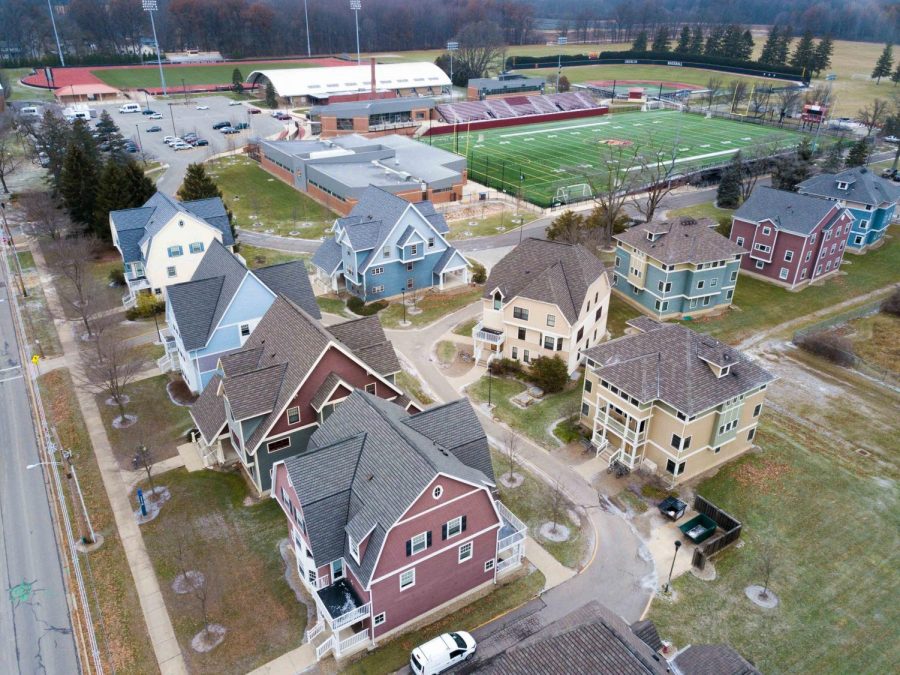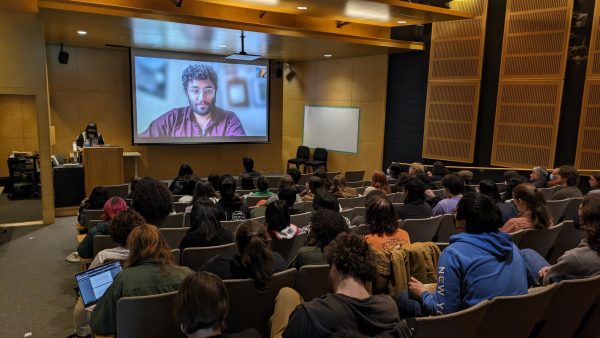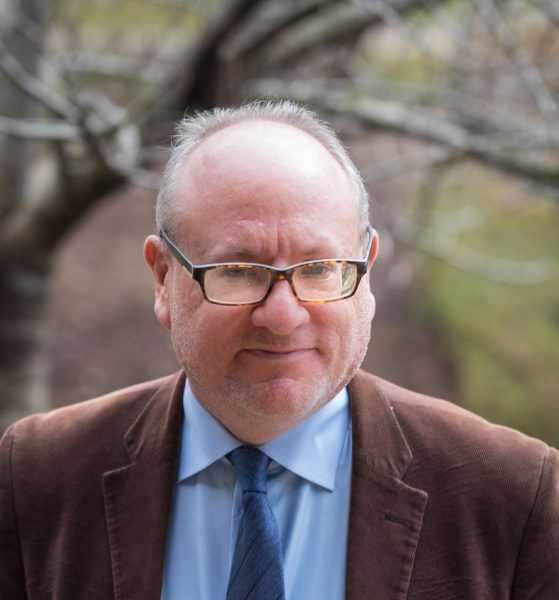Tours Stress Need for Housing Improvements
Although the Goldsmith and Union Street Village Housing Units were built in 2005, some of older residential areas will be showcased to trustees during the student-led tours this weekend. The tours are the first of their kind, launched by Student Senate to make trustees aware of poor facilities and housing.
Student Senate will arrange student-led campus tours for members of the Board of Trustees in attempt to make them aware of the deteriorating state of certain residential spaces on campus and highlight respective needed improvements. The tours will be held Dec. 7–9, in addition to the usual forums that take place in King Building during Trustee Week.
Senate’s goal is to convince the board to allocate more money and resources to housing and other spaces on campus in which students live, study, and spend time. In a survey administered by Senate in early November, 85 percent of respondents said they view the quality of housing at Oberlin as “neutral” or “bad.”
College junior and Student Senator Kameron Dunbar believes that the tours will help the board realize the impact housing has on students’ personal and academic development and that there is a dearth in open community spaces on campus.
“Oberlin has suffered from a degree of poor stewardship over our residential resources,” Dunbar said. “These are the places where we study, the places where academic learning happens, and the places where relationship building happens. These are all important things and important goals. If the quality of these spaces does not match these goals, we will never be able to achieve them.”
College sophomore and Student Senator Duncan Reid has been involved in determining which areas the board will visit — prioritizing spaces that need the most work.
“As of now, we will highlight good capital allocation and poor capital allocation,” Reid said. “We are going to highlight Village Housing because some of the housing is literally falling down. We want to highlight South [Hall’s] gym and how it’s a mess. We want to show that Kahn [Hall] is a new hall, but it hasn’t been kept in a good manner. Everything needs maintenance.”
Housing is an issue of mutual interest to trustees and students, according to Interim Vice President, General Counsel, and Secretary Donica Varner.
“Housing impacts climate and retention,” she said. “Students want to have nice places to live as well as places to support their co-curricular and academic interests. The board has a role in setting the budget and allocating financial resources as far as maintenance and building new structures.”
The board is the governing body of the College and Conservatory, meant to ensure its financial viability. College junior and Student Senator Meg Parker said the board is also responsible for managing Oberlin’s overall welfare.
“They are basically stewards of the College who care about the long-term trajectory of our institution,” she said. “They come together four times a year to discuss the things that impact how Oberlin functions and are provided with a general update on campus climate and how Oberlin is functioning. They approve the budget and do all of the big overarching governance on campus.”
Previously, trustees have only engaged students at student-trustee forums. The student-led tours will mark a new way of presenting student concerns to the board.
“To my knowledge, nothing like this has happened before,” said Dunbar, who came up with the idea for the event. “We have only seen engagement with the Board of Trustees happen in forums. This is a trial run. We expect students to be honest and not be deprecating of everything. It’s not just a space for students to rag, and there are valuable and interesting spaces here. We are hoping to give trustees an accurate portrayal of what it’s like to be a student at Oberlin through housing.”
Students and trustees have felt unsatisfied with student-trustee forums in the past because of low attendance and minimal student engagement. However, some believe that they are still a vital part of the campus discourse.
“I have received concerns from both trustees and students around the limited benefit of those discussions because students tend to come with complaints of operational issues instead of ones trustees can respond to,” Varner said.
Student Senator and College senior León Pescador echoed Varner’s sentiment, noting that the decision to launch residential tours raised much controversy in Senate recently.
“I’m in support of student-run tours that show trustees what our dorm experiences are like,” he said. “I’m all for programs that give trustees an in-depth look [at] student life. I am not in support of it being [a] full replacement of student-trustee forums. They are essential to students’ relationships with trustees. Opening discussion is critical in the same way that having town halls between constituents and representatives is important.”
Varner is hopeful that this proposal is a step towards increasing student and trustee engagement in the future.
“As the secretary of the College, my role is to facilitate opportunities to engage with the board in thoughtful ways,” she said. “We are looking to Senate to recommend new ideas. I am pleased that Senate is exploring it in a couple of ways. They submitted a memo outlining important concerns on behalf of students, they are hosting ‘Hang with Trustee’ events, where students are matched with a trustee and get to go to class to get a sense of the student experience, in addition to conducting these student-led tours. These experiences are wonderful and that’s the kind of engagement trustees are looking for.”
Each trustee will be paired with a tour guide selected by Senate from a pool of applicants.





